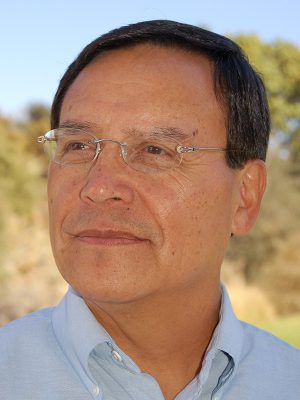 José Z. Calderón, Pitzer Professor Emeritus of Sociology and Chicano/a-Latino/a Studies
José Z. Calderón, Pitzer Professor Emeritus of Sociology and Chicano/a-Latino/a StudiesGroups and people often come together over a unifying cause—racial justice, voting rights, climate change, gun violence, gender equity—to address the most pressing issues of the day. Pitzer Professor Emeritus of Sociology and Chicano/a-Latino/a Studies José Z. Calderón recently co-authored an article that explores how movements predominately focused on one issue can coalesce across causes. The article, “Intersectional Organizing and Educational Justice Movements: Strategies for Cross-Movement Solidarities,” appeared in a special spring 2021 issue of The Assembly: A Journal for Public Scholarship on Education, published by the University of Colorado at Boulder’s School of Education.
In their paper, the authors explore “intersectional organizing as a strategy to create solidarity across issues, organizations, and communities to build a more united educational justice movement.” They define intersectional organizing as “an organizing strategy that centers the experiences and leadership of people who are affected by multiple forms of oppression.”
Through interviews with ten community organizers, the authors found that the movement is “largely siloed into separate issue-based campaigns.”
“Organizers believe that intersectional organizing can support greater cross-movement solidarity especially when combined with other processes, including building deep relationships, developing conscious leadership with shared understandings of systemic oppression through political education, and building trust through demonstrated long-term commitments to solidarity in practice,” they write in their abstract. “Nevertheless, many warn against an ‘Oppression Olympics’ that creates competition rather than solidarity.”
Calderón cites his experience as chairperson of the Latino/a Roundtable of the San Gabriel Valley and Pomona Valley outside of Los Angeles as an example of the way some groups can create solidarity around multiple issues. The Latino/a Roundtable links the immigrant rights and educational justice movements, and leaders in one area often go on to organize around other issues.
“This process empowers them to cross back and forth between what are considered immigrant rights issues (e.g., driver’s licenses for undocumented immigrants) and educational issues (e.g., community schools),” the paper’s authors write. “Community power is built in this intersectional manner, leading to more victories in each domain.”
Calderón’s co-authors are Mark R. Warren, professor of public policy and public affairs at the University of Massachusetts Boston (UMB); Andrew R. King, Bianca Ortiz-Wythe, and Patricio Belloy, who are doctoral candidates at UMB; and Pam Martinez, the co-founder and former co-director of Padres & Jóvenes Unidos (Parents and Youth United) in Denver, Colorado.
José Z. Calderón has devoted his professional life to finding effective ways to organize communities fighting for social justice and change. His book, Lessons from an Activist Intellectual: Teaching, Research, and Organizing for Social Change, draws on his experience as the son of immigrant farmworkers from Mexico. Throughout his career, he intertwined academia with activism, educating on and advocating for immigrant rights, voting rights, educational access, and justice system reform.
He joined Pitzer College’s faculty in 1991. His courses and research cover a multitude of subjects, including urban and political sociology, race and ethnic relations, multi-ethnic coalitions, urban community development, critical ethnography, and participant observation, language rights, experiential and service-learning, and Chicanx and Latinx communities.
Calderón received the National Association for Chicana and Chicano Studies (NACCS) lifetime achievement award in 2019. In addition to NACCS, numerous organizations have recognized his contributions to the higher education and communities, including the California Alliance of African American Educators, the California Campus Compact, and the United Farm Workers Union. Calderón earned his PhD in sociology at UCLA, focusing his research on community formations.